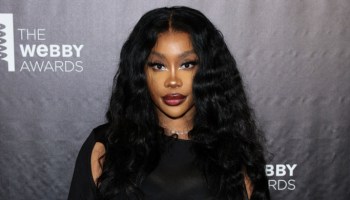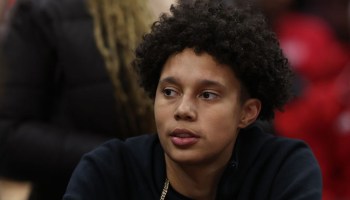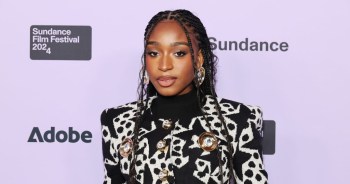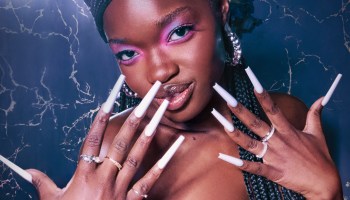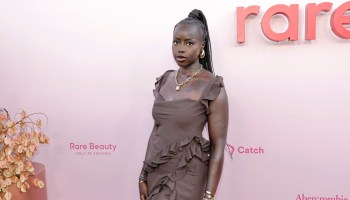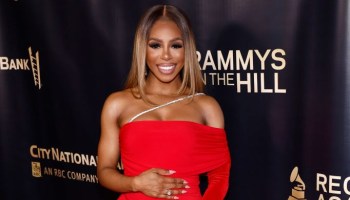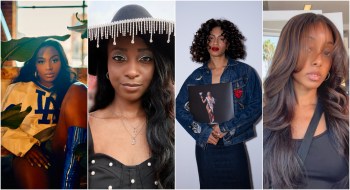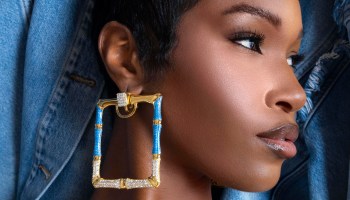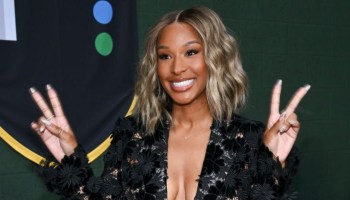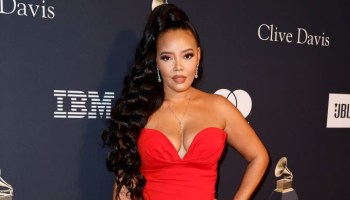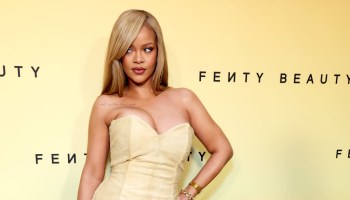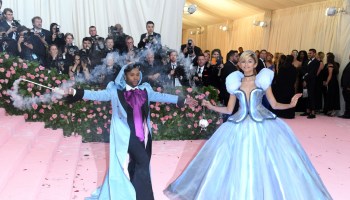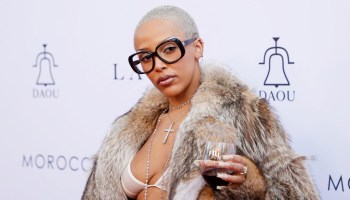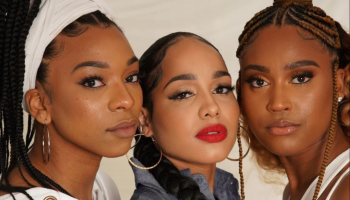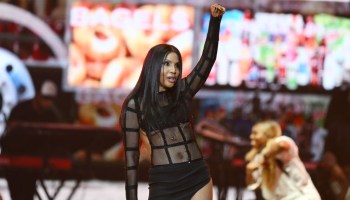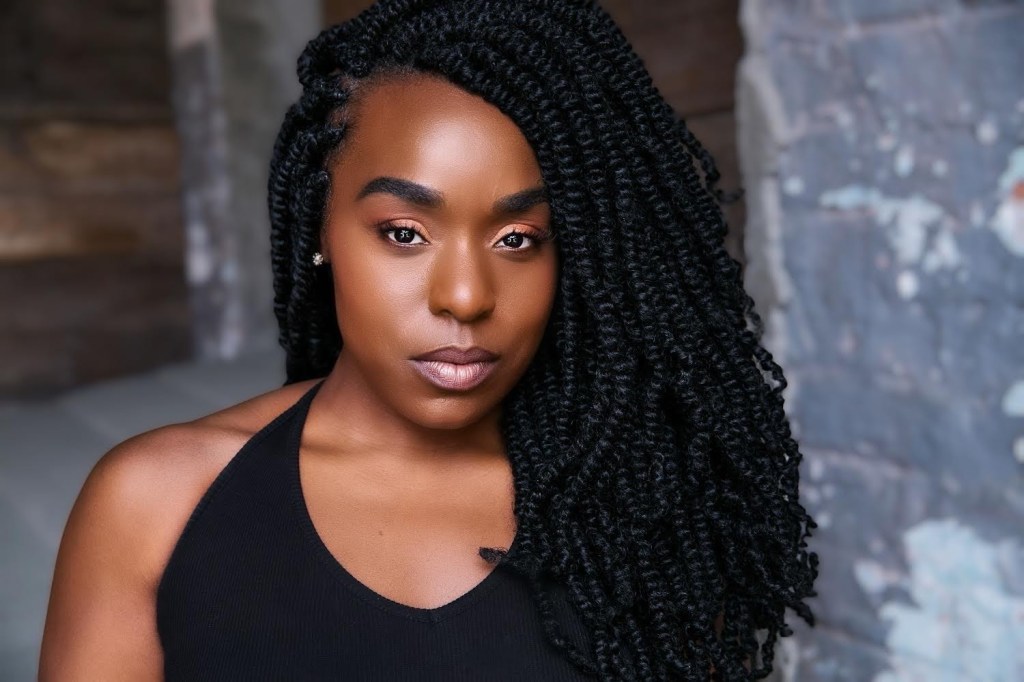
Source: Christine Jean Chambers / Christine Jean Chambers
Hours before she is due on stage, Maechi Aharanwa is playing a different role. Perched on a bar stool at the Citizen M Hotel with the collar of her chambray shirt sticking out of her eggshell pom sweater, she looks like your typical entrepreneur working at a space she discovered on TikTok. You’d never know she’d deliver genre-defying lines at the Samuel J. Friedman Theatre hours later in Jaja’s African Hair Braiding.
Harlem’s Finest
The play has become one of the most buzzed-about shows on Broadway thanks to the acting of Aharanwa and her co-stars. They play a group of braiders preparing the women of Harlem for birthday parties, night shifts, and vacations. Aharanwa plays the ambitious Ndidi. The character is a jealousy-provoking, Nollywood-quoting go-getter, not letting anyone knock her off her square. This stirs up some issues in the play. In real life, those qualities serve the actress. Sharing her character’s hustle helped Aharanwa’s company, PinMe1913, collaborate on merch for the show. “When I found out they were wanting to honor Black women entrepreneurs. I asked if I could get in there and create a collection,” she told HelloBeautiful.
The collection features golden pins featuring sayings from the shows and symbols from its setting. There is a golden mirror, a parting comb, and more. Aharanwa got the nerve to pitch the collection from the same place that allows her to audition for roles with butterflies swirling in her belly. She once received the acting advice, “You can be nervous and work.” That applies to her work offstage as well. “And as an entrepreneur, it’s the same thing. You can be nervous, but you need to ask because otherwise, how can you get the gig, make the money, and propel your business forward?”
Doing Double Duty
Double duty might not have been possible in another production, but Jaja’s African Hair Braiding is not just a production centering on the lived experiences of Black women. It is one they control. It was written by Jocelyn Bioh and directed by Whitney White. The producing team includes LaChanze and HelloBeautiful cover star Taraji P. Henson.
Aharanwa went to the playwright to pitch the pins. She backed her up. “Jocelyn and Whitney, our director, facilitated the start of that conversation,” Aharanwa said about her work creating the collection for the play. “I just was so thrilled that they said yes and people are receiving the product. They are purchasing it at the theater. That makes me excited,” she continued.
More Than A Seat At The Table
She is happy to be in a production where Black women have the authority to make autonomous decisions.
“We should be in spaces that allow us to move forward and create lanes that can provide more for us. We should be able to provide for ourselves, and once we get to that table, we need to provide for those coming behind us, and I feel like that’s what Jocelyn did,” she continued. “Not only did she give me the opportunity to tell this beautiful story. She then, on top of that, gifted me an opportunity to expand my business because this theater merchandise space is not a space that I was in. This is my first time doing it. I hope it won’t be my last.”
Aharanwa feels comfortable being herself as an actor and a businesswoman in the environment. “I feel seen. I feel like there are people who understand what I am trying to do,” she said.
For ninety minutes, the faded ship lap and turquoise tinsel of an African Braiding shop draw you inside the experience in a way that has never been highlighted so accurately. Faces in the play are the kind of people tucked into corners of every shop. There’s the RN with the stank attitude, the editorial assistant clutching her MacBook, and the Fendi bag-toting nepo baby who only goes uptown for some straight backs. The girl who swears she looks like Beyoncé and the dude selling see-through socks for a come-up are all present. It’s an experience that could not be created by anyone else.
Bringing The Real To Broadway
Aharanwa and her co-stars were prepared to give the audience a realistic version of what African braiding shops are like. “I didn’t have to do much work on my own because our fabulous hair and wig designer, her name is Nakia Mathis, she assembled an amazing team, and part of the process was going to braiding boot camp,” she explained. “We had at least one session a week during the rehearsal process that was about four hours each.”
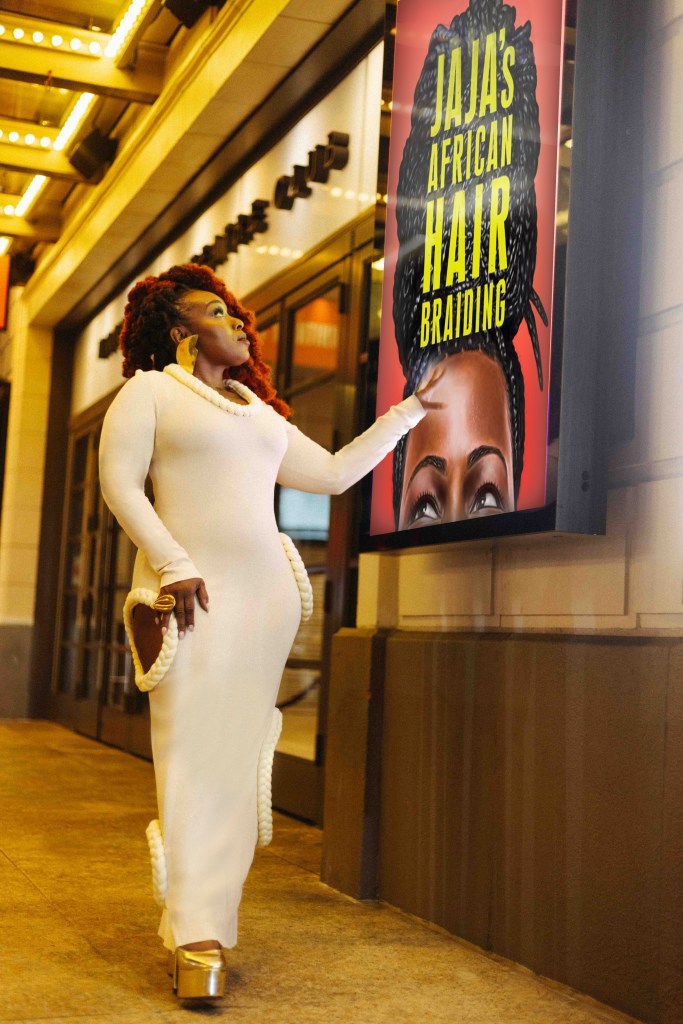
Source: Trevon James / Trevon James
She described the bootcamp, taught by master stylist Susy Oludele, as having a “classroom-type vibe.” It allowed her to pick up a skill she wanted to pick up for quite a while. “We all just went in there, and they taught us to do cornrows, box braids, [and] how to feed in, which I always wanted to know how to do.”
The cast mimicked the controversies their characters engaged in playfully. “We were fake competitive about it because some people are a little bit more advanced than others,” recalled Aharanwa.
Reframing High Art
Jaja’s African Hair Braiding is leaving Broadway on November 19. It has been extended several times after resonating with audiences. “They can see themselves in the story,” said Aharanwa.
“You get to see the diaspora on that stage, right? And even though it is that specific story, it is in specificity that we find universality,” she continued. “Even though it is focused on these braiders and their beautiful clients, we’re talking about love. We’re talking about being able to make money and have a living; we’re talking about feeling safe and secure. We’re talking about a hustle.”
The characters face systemic oppression, financial abuse, physical threats to their safety, and fear of irrelevance. “I think our themes touch everybody’s life on a daily basis. So, this is why people can relate to it. Because they can see themselves, they can see their friends, they can see their family,” she added.
Creating Space For Black Girls
The play speaks explicitly to Black women and girls familiar with the inside of the kind of shops it focuses on. “One of the most joyful parts of this thing has been meeting audience members after the show,” said Aharanwa. “A lot of them are young Black girls. And my first Broadway show was not this, you know? I didn’t see this specific reflection of myself.”
“People are using them on runways, TV shows, red carpets,” said Aharanwa. She sees shifts in the settings where stories are being explored on Broadway as a positive change as well.
“You are seeing more of these styles that African hair braiders have been doing for years. These styles that were not allowed and workplaces that inspired the development of the Crown Act to be pushed forward,” she said. “More of the world is sort of opening up to things that are not so Eurocentric.”
DON’T MISS:
Janelle Monáe Is Highlighting The Legacy Of Progressive Black Artist Loïs Mailou Jones
Sheryl Lee Ralph Shares The Darker Side Of Her Career On TV One’s ‘Uncensored’

